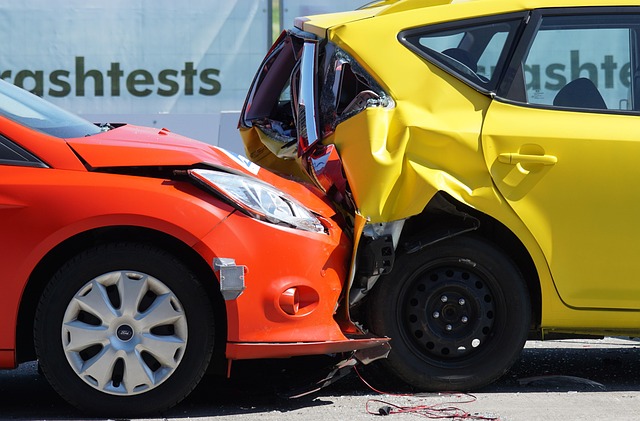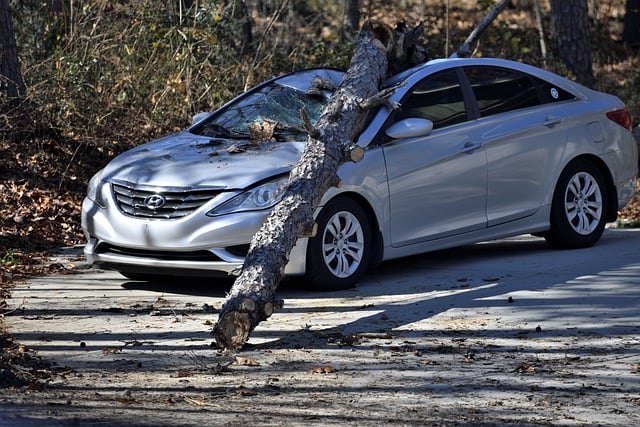Collision and comprehensive auto insurance offer distinct protections. Collision covers damages from accidents with other vehicles or objects, while comprehensive provides broader protection against non-collision events like theft, natural disasters, vandalism, and falling objects. Choice depends on driving habits, vehicle condition, risk tolerance, and geographical location. Comprehensive is recommended for diverse risks, while collision suits accident-prone drivers. Understanding these differences helps make an informed decision to ensure adequate financial protection.
Collision and comprehensive auto insurance are essential components of any driver’s safety net, offering protection against unexpected events on the road. This article demystifies these coverage types, guiding you through the intricacies of understanding auto policies. We’ll explore collision coverage’s role in addressing specific accidents and its contrast with comprehensive insurance’s broader protection against non-collision incidents. By examining common exclusions, premium influences, and scenario-specific choices, this guide empowers you to make an informed decision between collision vs. comprehensive.
Understanding Auto Insurance Policies

Auto insurance policies can seem complex, but understanding the basics is crucial for making informed decisions about your coverage. One common distinction lies between collision and comprehensive insurance. Collision insurance specifically covers damages to your vehicle from accidents, paying for repairs or replacement if needed. It’s designed to protect you financially when you’re involved in a collision with another vehicle or object.
On the other hand, comprehensive insurance offers broader protection by covering a wide range of incidents beyond collisions. This includes damage from natural disasters like storms, theft, vandalism, and even accidental damage. While collision insurance is typically mandatory in many places due to its focused nature, comprehensive coverage provides an extra layer of security for unforeseen circumstances. Choosing between the two depends on your driving habits, vehicle condition, and personal risk tolerance.
What is Collision Coverage?

Collision coverage is a type of auto insurance that provides protection against financial loss in the event of a car accident. When you have collision coverage, your insurance company will pay for damages to your vehicle, up to the limits specified in your policy, if you’re involved in a crash with another object or vehicle. This includes accidents where your car is at fault or not. Unlike comprehensive insurance, which covers a wider range of perils like theft, natural disasters, and vandalism, collision coverage specifically targets damage caused by collisions.
When comparing collision vs. comprehensive auto insurance, it’s important to understand that while collision coverage repairs or replaces your vehicle after an accident, comprehensive insurance offers additional protection against non-collision related incidents. Comprehensive coverage may be a good fit for those who want broader protection, while collision coverage is more tailored for individuals primarily concerned about the financial impact of accidents caused by themselves or other drivers.
Different Scenarios, Different Protections

When it comes to auto insurance, understanding the difference between collision and comprehensive coverage is crucial. Both are designed to protect drivers financially, but they serve distinct purposes. Collision insurance specifically covers damages to your vehicle resulting from a crash with another object or vehicle, providing repairs or replacement as needed. On the other hand, comprehensive insurance offers broader protection, covering not just collisions but also damage from events like theft, vandalism, natural disasters, and even accidents involving non-moving objects.
This distinction is vital when considering different scenarios. If you’re involved in a collision with another driver, collision coverage would typically step in to help pay for the damages. However, if your car is stolen or damaged by a falling tree branch, comprehensive insurance would be the appropriate choice. Collision vs. comprehensive auto insurance thus caters to varying needs, ensuring drivers are protected against a wide range of potential risks.
Comprehensive Insurance: Protecting Against the Unforeseen

Comprehensive insurance, often overlooked but immensely valuable, is designed to protect vehicle owners from financial disasters that go beyond typical accidents. Unlike collision coverage, which primarily deals with damages resulting from collisions with other vehicles or objects, comprehensive insurance steps in when your car encounters unforeseen perils. This includes events like theft, natural disasters, vandalism, and even damage caused by falling objects.
When you opt for comprehensive auto insurance, you’re essentially creating a safety net that ensures peace of mind. It covers repairs or replacements for your vehicle, minus the deductible you choose to pay, allowing you to recover from these unexpected incidents without breaking the bank. This type of coverage is especially crucial for high-risk areas where theft or natural calamities are prevalent, providing an extra layer of security in the event that collision insurance alone isn’t sufficient.
Common Exclusions in Collision and Comprehensive Policies

Collision and comprehensive insurance policies are designed to protect vehicle owners from financial loss due to accidents or damage, but both have distinct exclusions. While collision coverage typically covers damages resulting from accidents involving another vehicle or stationary object, it usually excludes theft, vandalism, natural disasters, and wear and tear. On the other hand, comprehensive insurance provides broader protection, covering not only collisions but also theft, vandalism, flood damage, and animal-related incidents. However, comprehensive policies may exclude specific high-risk activities or vehicles with a history of frequent claims.
Understanding these exclusions is crucial when comparing collision vs. comprehensive auto insurance. Collision policies are more suitable for those primarily concerned about protecting themselves from financial loss due to accidents, while comprehensive insurance offers a more all-encompassing solution for vehicle owners seeking broader coverage against various risks and unforeseen circumstances.
Factors Influencing Premium Costs

When comparing collision vs. comprehensive auto insurance, understanding how premium costs are determined is essential. Several factors influence these prices, making it crucial to consider them before selecting a policy. First and foremost, the type of vehicle you own plays a significant role; luxury or high-performance cars often come with higher premiums due to their increased value and potential for more severe damage in accidents. Additionally, your driving history is a critical consideration. A clean record without previous claims can lead to lower rates, while multiple accidents or violations may significantly increase costs.
Age and location also factor into premium calculations. Younger drivers, especially those under 25, usually face higher premiums due to their lack of driving experience. Similarly, areas with higher crime rates or frequent car thefts will result in more expensive insurance as insurers account for these risks. Finally, the level of coverage you choose directly impacts your costs; comprehensive plans, which cover a wide range of incidents beyond collisions, tend to be pricier than collision-only policies.
When to Choose Each Type of Coverage

When deciding between collision and comprehensive auto insurance, understanding what each covers is key. Collision coverage kicks in when your vehicle experiences physical damage due to a crash with another object or vehicle. It helps pay for repairs or replacement costs, but only if there’s actual physical contact involved. This type of coverage is essential if you’re prone to accidents or drive on treacherous roads where collisions are more likely.
On the other hand, comprehensive auto insurance offers protection against a wider range of events beyond collisions. This includes damage from natural disasters like floods, fires, theft, vandalism, and even animal-related incidents. Comprehensive coverage is beneficial if you live in areas prone to these hazards or have valuable items within your vehicle that could be targeted by thieves. It provides peace of mind knowing that unexpected events won’t leave you with a hefty repair bill.
Making an Informed Decision: collision vs. comprehensive

When deciding between collision and comprehensive auto insurance, understanding the differences is crucial. Collision coverage protects against damages to your vehicle in case of a crash, but it does not include losses from theft or natural disasters. On the other hand, comprehensive insurance provides broader protection, covering not only accidents but also theft, vandalism, and even weather-related damage.
Collision insurance is often seen as more focused on specific incidents, while comprehensive insurance offers a safety net for a wider range of unforeseen events. In terms of Collision vs. Comprehensive Auto Insurance, choosing the right type depends on your personal situation. If you drive an older vehicle with lower resale value or live in an area prone to natural disasters, comprehensive coverage might be the better option. Conversely, if your car is relatively new and you’re cautious driver, collision insurance could suffice.
